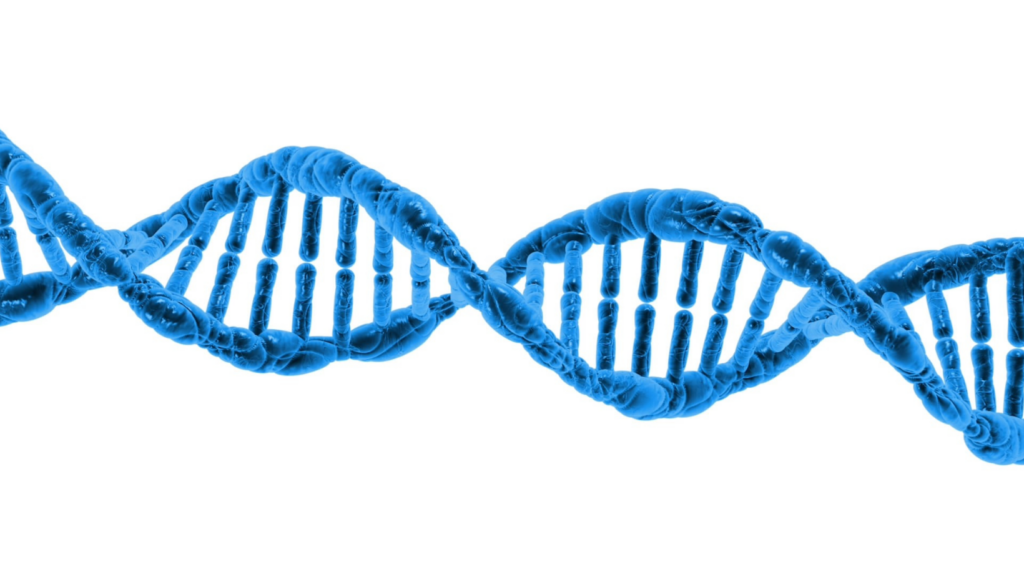In a world driven by innovation, high-tech technology stands at the forefront of change. From artificial intelligence to cutting-edge robotics, these advancements are reshaping industries and everyday life. It’s hard to ignore how quickly these technologies evolve, making it essential for individuals and businesses to stay informed.
As society embraces these breakthroughs, understanding their implications becomes crucial. High-tech technology not only enhances efficiency but also opens doors to new possibilities. Whether it’s improving communication or revolutionizing healthcare, the impact of these innovations is profound. Exploring the realm of high-tech technology reveals a landscape filled with potential and challenges, urging everyone to adapt and thrive in this fast-paced environment.
Hi Tech Technology
Hi-tech technology encompasses advanced innovations that propel industries into the future. Technologies such as artificial intelligence (AI), machine learning (ML), robotics, and the Internet of Things (IoT) exemplify this trend, contributing to improved productivity and operational efficiency across sectors.
AI systems process large volumes of data, enabling decision-making based on patterns and predictions. Machine learning algorithms enhance this capability by continually refining their effectiveness through experience. Robotics streamline manufacturing and service processes, reducing human error and increasing speed.
The integration of IoT devices facilitates real-time data collection and analysis. These devices connect and communicate, creating a network that results in smarter operational strategies. The healthcare sector particularly benefits from these advancements, with telemedicine technologies allowing for remote patient monitoring and consultations.
Emerging technologies also influence daily life, from smart home devices to wearables that monitor health metrics. These innovations empower individuals to make data-driven decisions regarding wellness and lifestyle. Adaptations to these technologies enhance not only communication but also the overall quality of life, presenting new opportunities and challenges for society to navigate.
Key Innovations in Hi Tech Technology
Hi-tech technology drives groundbreaking advancements, enhancing numerous sectors through innovative solutions. Key innovations include artificial intelligence, the Internet of Things, and blockchain technology.
Artificial Intelligence
Artificial intelligence (AI) transforms decision-making across various fields. AI systems analyze extensive data sets to derive insights that aid strategic planning. For instance, healthcare providers use AI-driven algorithms for diagnostics and treatment recommendations. Retailers implement AI for personalized customer experiences by analyzing shopping patterns. AI chatbots streamline customer service, providing instant responses and support. As AI continues to evolve, it improves efficiency and accuracy in numerous applications.
Internet of Things
The Internet of Things (IoT) connects everyday devices to the internet, facilitating data exchange and automation. Smart home devices, such as thermostats and security systems, enable remote monitoring and control, enhancing user convenience. In the industrial sector, IoT sensors track equipment performance, leading to predictive maintenance and reduced downtime. Agriculture benefits from IoT technology with precision farming methods that optimize resource usage. The widespread adoption of IoT highlights its role in improving operational efficiency and enriching user experiences.
Blockchain Technology
Blockchain technology offers enhanced security and transparency in data management. By employing a decentralized ledger system, it safeguards sensitive information from unauthorized access. Financial services leverage blockchain for secure transactions and fraud prevention, improving trust among stakeholders. Supply chain management utilizes blockchain to provide real-time tracking of goods, ensuring accountability and authenticity. As more industries explore blockchain capabilities, its applications continue to expand, offering innovative solutions for complex problems.
Impact of Hi Tech Technology on Society
High-tech technology significantly affects various aspects of society, driving economic changes and social transformations. These changes vary across different sectors, enhancing quality of life and enabling new opportunities.
Economic Changes
Economic shifts arise from the integration of high-tech technology across industries. Automation increases productivity, allowing businesses to operate efficiently. Companies leveraging artificial intelligence (AI) report up to 40% growth in revenue due to enhanced data analysis and customer insights. Additionally, robotics in manufacturing reduces production costs by 20% to 30%, leading to increased profitability.
High-tech technology also creates new job markets. For instance, the demand for data scientists has surged, with job openings expected to increase by 28% within five years. Moreover, advancements in e-commerce platforms foster entrepreneurship, enabling small businesses to compete globally. Investment in high-tech ventures boosts national economies, with global spending on digital transformation projected to reach $2.3 trillion by 2023.
Social Transformations
Social transformations occur as high-tech technology reshapes interpersonal interactions and daily rituals. Communication platforms enable real-time connections, fostering relationships across geographic boundaries. The rise of remote work, facilitated by collaboration tools, allows individuals to maintain work-life balance while accommodating personal needs.
Healthcare impacts society through telemedicine technologies. Virtual consultations and remote monitoring improve access to medical care, particularly in rural areas. Statistics show that 76% of patients report higher satisfaction with telehealth services due to convenience and reduced travel time.
Education also experiences transformation. Digital learning platforms increase access to quality education, with e-learning markets expected to surpass $375 billion by 2026. Students can personalize their learning experiences, enhancing engagement and retention.
High-tech technology empowers citizens with data-driven insights. Wearable devices promote health awareness, while smart home technologies enhance convenience. As society adapts to these technological advancements, individuals increasingly rely on high-tech solutions to drive informed decision-making in everyday life.
Challenges and Concerns
High-tech technology presents various challenges and concerns that stakeholders must address. Privacy issues and ethical considerations arise as advancements continue to shape society’s landscape.
Privacy Issues
Privacy concerns escalate with the proliferation of high-tech technology. Data collection from devices, such as IoT appliances and mobile apps, raises questions about user consent and data security. For instance, over 70% of consumers express concerns about their personal information being improperly accessed or exploited. Organizations often struggle to implement robust data protection measures. Breaches can lead to significant financial losses and damage to reputation. Developing comprehensive data management policies and adhering to regulations, such as the General Data Protection Regulation (GDPR), is essential for safeguarding user information and maintaining trust.
Ethical Considerations
Ethical considerations in high-tech technology span various domains, including AI, automation, and workforce implications. AI systems may inadvertently perpetuate biases present in training data, leading to unfair outcomes in decision-making processes. Approximately 60% of AI professionals report concerns about algorithmic transparency and accountability. Moreover, automation poses threats to job security, as machines take over tasks traditionally performed by humans. Addressing these ethical challenges requires a collaborative effort among technologists, regulators, and ethicists to ensure equitable and responsible deployment of innovations. Implementing guidelines for ethical AI development and considering the broader societal impacts during technological advancements is vital for fostering a balanced approach.
Future Trends in Hi Tech Technology
Future trends in high-tech technology indicate significant advancements across multiple sectors. Innovations in artificial intelligence (AI) foresee improved machine learning algorithms capable of self-training and enhancing decision-making processes. These systems analyze vast datasets, refining their accuracy over time, crucial for industries such as finance and healthcare.
Advancements in the Internet of Things (IoT) are expected to enhance connectivity between devices, driving automation and data integration. With an estimated increase of 75 billion connected devices by 2025, efficiency in resource management and operational strategies will gain traction, particularly in manufacturing and urban infrastructure.
Robotics will also experience significant growth with the development of more sophisticated automation systems. Collaborative robots, or cobots, designed to work alongside humans, promote safety and efficiency in various tasks, making them invaluable in sectors like warehousing and assembly lines.
Blockchain technology is set to revolutionize data security and transparency across industries. By employing decentralized ledgers, organizations can ensure data integrity and streamline operations, particularly in supply chain management, where traceability improves accountability.
In healthcare, innovations in telemedicine will expand access to essential services. A projected 60% increase in telehealth consultations over the next few years will facilitate remote monitoring and personalized treatment plans, ultimately enhancing patient care quality.
Sustainability-focused technologies will emerge, emphasizing the need for eco-friendly practices. Developments in renewable energy technologies, smart grids, and carbon capture will support efforts to reduce environmental impact while maintaining economic growth.
Cybersecurity innovations will play a vital role in countering threats posed by digital transformation. With cybercrime expected to cost the global economy over $10 trillion annually by 2025, organizations must adopt advanced security protocols and real-time threat detection.
Overall, the convergence of these trends will shape the future of high-tech technology, enhancing productivity and creating new opportunities across various sectors. Professionals must remain informed and adaptable to leverage these advancements effectively.
High-tech technology is undeniably reshaping the landscape of industries and everyday life. Its rapid evolution fosters innovation and enhances efficiency across sectors like healthcare and communication. As advancements in AI, IoT, and robotics continue to emerge, they create new opportunities and challenges that demand attention.
The importance of staying informed about these technologies cannot be overstated. Organizations and individuals alike must adapt to leverage the benefits while addressing ethical and privacy concerns. The future promises even more transformative changes, making it essential for everyone to embrace this technological evolution. By doing so, they can navigate the complexities and seize the opportunities that high-tech innovations present.



